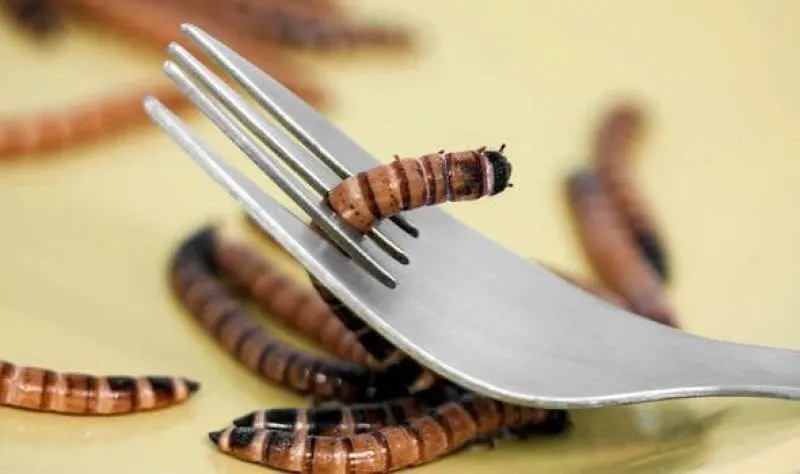‘Future foods’: How kelp, maggots, fungus and other nutrients grown outside of the traditional agriculture system can help fight climate change
‘Future foods’: How kelp, maggots, fungus and other nutrients grown outside of the traditional agriculture system can help fight climate change


In a new perspective piece, researchers at the University of Cambridge’s Centre for the Study of Existential Risk explain that in a world of climate change, pandemics, wildfire, and additional disasters, there is a high potential for a devastating constellation of events to destabilize the global food production system, putting the world at risk.
Asaf Tzachor, a research associate at Cambridge, and colleagues write that to help reduce the risk of large disturbances that could upend our ability to adequately feed people, we need to consider “future foods.”
…
The types of future foods they propose—kelp, maggots, and fungus—are already consumed in many parts of the world such as in Asia and Africa, but may meet some resistance in areas where eating food such as arthropods is not as common. “Reservations about eating novel foods like flies, algae, beetles, and bivalves, could be overcome by using them as ingredients and additives rather than eating them whole,” Tzachor says.
The beauty of these future foods, Tzachor says, is that they can be grown outside of the traditional agricultural environment in self-contained, modular units. Vertical farming and similar methods have been a growing research interest for rural communities and urban environments alike.
Read the original post

 | Videos | More... |

Video: Nuclear energy will destroy us? Global warming is an existential threat? Chemicals are massacring bees? Donate to the Green Industrial Complex!
 | Bees & Pollinators | More... |

GLP podcast: Science journalism is a mess. Here’s how to fix it

Mosquito massacre: Can we safely tackle malaria with a CRISPR gene drive?

Are we facing an ‘Insect Apocalypse’ caused by ‘intensive, industrial’ farming and agricultural chemicals? The media say yes; Science says ‘no’
 | Infographics | More... |

Infographic: Global regulatory and health research agencies on whether glyphosate causes cancer
 | GMO FAQs | More... |

Why is there controversy over GMO foods but not GMO drugs?

How are GMOs labeled around the world?

How does genetic engineering differ from conventional breeding?
 | GLP Profiles | More... |

Alex Jones: Right-wing conspiracy theorist stokes fear of GMOs, pesticides to sell ‘health supplements’




 Trust issues: What happens when therapists use ChatGPT?
Trust issues: What happens when therapists use ChatGPT? Fighting deforestation with CO2: Biotechnology breakthrough creates sustainable palm oil alternative for cosmetics
Fighting deforestation with CO2: Biotechnology breakthrough creates sustainable palm oil alternative for cosmetics Viewpoint — Fact checking MAHA mythmakers: How wellness influencers and RFK, Jr. undermine American science and health
Viewpoint — Fact checking MAHA mythmakers: How wellness influencers and RFK, Jr. undermine American science and health Viewpoint: Video — Big Solar is gobbling up productive agricultural land and hurting farmers yet providing little energy or sustainabilty gains
Viewpoint: Video — Big Solar is gobbling up productive agricultural land and hurting farmers yet providing little energy or sustainabilty gains California, Washington, Oregon forge immunization alliance to safeguard vaccine access against federal undermining
California, Washington, Oregon forge immunization alliance to safeguard vaccine access against federal undermining 30-year-old tomato line shows genetic resistance to devastating virus
30-year-old tomato line shows genetic resistance to devastating virus The free-range chicken dilemma: Better for birds, but with substantial costs
The free-range chicken dilemma: Better for birds, but with substantial costs ‘You have to treat the brain first’: Rethinking chronic pain with Sanjay Gupta
‘You have to treat the brain first’: Rethinking chronic pain with Sanjay Gupta
